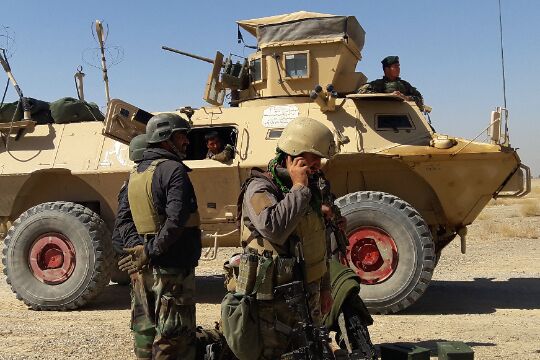Biting the bullet

As the US gets ready to leave Afghanistan, the hope for a peace process is evaporating fast. In recent months, the Taliban has stepped up its campaign of violence and intimidation to gain significant control of the country without the fear of US airstrikes knocking on their doors. UN's special envoy on Afghanistan, Deborah Lyon recently estimated that around 50 of the 370 districts of Afghanistan have now fallen into the control of the Taliban. Many are areas where the group was kept out of for the last 20 years. Slowly but certainly, the Taliban is moving beyond their southern strongholds. At this current rate, the Taliban could possibly retake the entire country within months of America leaving and essentially erase any and all progress made by the country following the fall of The Islamic Emirate of Afghanistan. Every day, increasingly aggressive lightning strikes on Afghan security forces are taking their toll and pushing the government back. Sometimes, cities are being taken without firing a single shot according to the Taliban itself. Their intentions are not ambiguous. Many of the districts the Taliban is claiming surround provincial capitals and vital hold-out areas for the Afghanistan government. Once again, the country is moving towards sustained civil strife. Joining the Afghan security forces are fighters from the country's many ethnic groups — from the Uzbeks to Tajiks — who are now once again taking up arms after a gap of nearly 20 years. Once they fought against the Taliban as the Northern Alliance, now once again they are being called to a fight for defending their homes against the return of the Taliban regime. Now, the Pentagon is reportedly discussing the redline they want to set that the Taliban cannot be allowed to cross. The idea is that if the Taliban is about to take Kabul and the country is about to enter a major crisis, then US warplanes and drones should be authorised to lead strikes. Interestingly, the reports suggest that the US may not be quite so eager to protect relatively smaller targets. Kandahar, the second biggest city in Afghanistan may not get US help even if it is overrun. Given this steady ramping up of tensions, the peace process obviously looks doubtful. Beyond the US and Afghanistan, another country that is watching these developments with growing concern is India. India is a major development partner and ally of Afghanistan and has quietly supported the fragile Afghan government for nearly two decades with development grants, lines of credit and security training. Now that the US is withdrawing and India sees the long-term development of the region that it was invested in under jeopardy, India is attempting to push for a comprehensive ceasefire. But this obviously does not mean simply continuing to engage with just the Afghan government. India is now trying to engage with all relevant stakeholders. At a webinar organised by the Arab Centre in Washington DC, a senior Qatari diplomat stated that he believed the Indian side was engaging with the Taliban. It should be noted that India has not confirmed its meeting with the Taliban, a group that in the past it has vehemently refused to recognise. That said, it is known that Indian diplomats are indeed trying to reach out to different stakeholders. Earlier this month, the Hindustan Times had reported that India is limiting its Taliban outreach to groups that are seen as more nationalist and less likely to be under the sphere of influence of Pakistan or even Iran. The idea here is that the Taliban is not a monolithic organisation, something that has become increasingly obvious over the years. While groups like the Haqqani Network are outrightly antagonistic to India, others can be more neutral or even welcoming of India's role in the region due to India's measured diplomacy in the region over the years. Quite unlike an invasive power, India has launched programmes that help the people of Afganistan while keeping clear of anything that could infringe on their sovereignty. An important part of this image is that India has, as yet, kept its 'boots off the ground' even though it is involved in training the security forces. There is little question that India will have to engage the Taliban in some capacity, if only to keep it away from the machinations of Pakistan, Iran or even China. But whether it leads to a peaceable outcome is an entirely separate matter. The US has repeatedly miscalculated that the Taliban would 'behave' because it is seeking international recognition. India must not make the same mistake.



